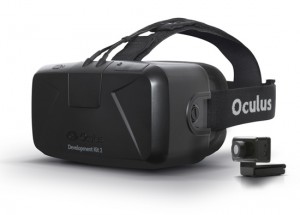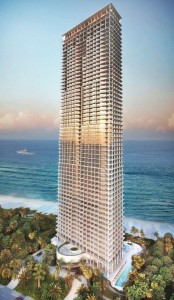As innovations like video chat, smart homes and even virtual reality increasingly infiltrate daily life, the South Florida real estate industry is embracing the trend, using technology to market, sell and even build properties.
Miami-based Opulence International Realty is using videochat technology developed by local startup LiveNinja to connect with potential buyers. James Hoffman, president of Opulence, said the volume of video chats between clients and brokers has jumped from three a day in the weeks following its launch earlier this year to 50. The chats can be conducted on desktops or laptops, but most are done on smartphones and tablets, where Hoffman said most people view the website.
“For us, it’s working out extremely well,” Hoffman said. “We’re cutting down on that lag time between having a question and answering that question.”
While Opulence is using technology to connect with buyers, New York–based developer Property Markets Group — which is working on several luxury condominiums in South Florida — is using a series of “smart” amenities to attract them.

Oculus Rift
PMG’s 50-story condominium Muse is designed to incorporate technology throughout. Owners will be able to control each unit’s lights, temperature and speaker systems with a smartphone or tablet. The building will also feature elevators with facial recognition, safes with fingerprint scanners, flat-screen televisions built into walls and window shades that follow the sun throughout the day.
At another of their developments, Echo Brickell, PMG plans to include a robotic arm that parks cars for residents by sliding under vehicles and lifting them into parking spaces.
Evan Schapiro, a PMG director, said that most firms consider their work on a property done after the traditional buildout is finished. Not so for PMG. “We start the tech part where every other developer finishes,” Shapiro told The Real Deal.
On the construction side of the market, Suffolk Construction has used new technology to accomplish a feat never before seen in South Florida: A parking garage 60 feet under sea level.

The Jade Signature residential tower, which relied on new technology to construct an underground garage. (Credit: ArX Solutions)
The company is working on the luxury condominium Jade Signature in Sunny Isles. The developer, Fortune International Group, asked Suffolk if it could put the tower’s parking underground to keep it out of sight. The problem? Dig deeper than a few feet in South Florida and the hole fills with water.
“Imagine if you pushed [the garage] below grade so that you’re looking through the lobby doors and see the ocean,” said Rick Kolb, senior vice president of Suffolk. “That’s what Fortune’s mission was … to give that vision from the street level to the ocean.”
In order to build a garage that wouldn’t flood, Suffolk needed to create a massive watertight concrete box deep underground. The complicated undertaking required advanced 3D modeling and drones flying overhead to monitor the construction. Using this technology, workers were able to drill 2,000 holes 60 feet into the ground and fill them with concrete and water. The interlocking pillars created a block that the company was able to hollow out to build the garage.
The team at ArX Solutions, a technology firm that got its start in Argentina opened a South Florida office in the 2000s, seeks to create a digital experience for its users. The company is known for producing high-resolution renderings, videos and animations for developments. But for the last few years they have been working on something more immersive — virtual reality.
With a type of goggles called the Oculus Rift, the company has created the ArXperience 3D, which puts potential buyers inside a unit without stepping foot on the property.
The goggles place the wearer in what is essentially a video game: The user can move through a condo, for example, and look at everything from the layout of a bathroom to the space in a walk-in closet. The novelty and utility allows users to explore features that would not be apparent in a photograph. For example, the user can look up and see the height of a ceiling, sense the width of a hallway or look at the view from a balcony.
Patricio Navarro, president of ArX, said that while websites were once the gold standard for marketing, virtual reality will soon become the go-to technology for selling a client.
“This design is going to change the way we do business,” Navarro said. “A salesperson in the U.S. can show a home in Japan and close the deal that same day.”
Correction: An earlier version of this article incorrectly stated the president of ArX is named Patricio Gonzalo. His name is Patricio Navarro. It also stated that ArX was an Argentinian firm that opened in South Florida in the 1990s. ArX is an American firm that started in Argentina and opened an office in South Florida in the 2000s.
